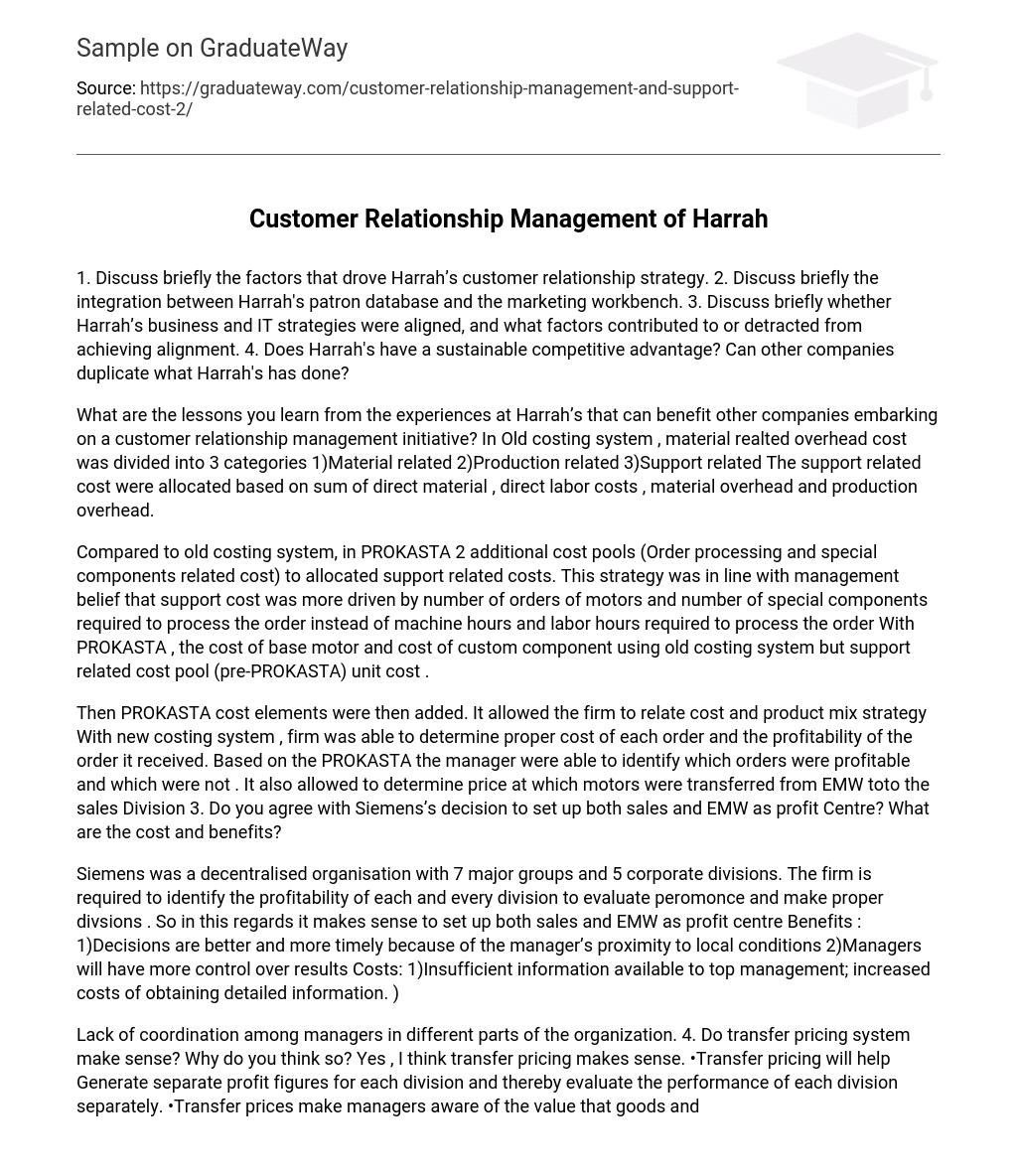1. Discuss briefly the factors that drove Harrah’s customer relationship strategy. 2. Discuss briefly the integration between Harrah’s patron database and the marketing workbench. 3. Discuss briefly whether Harrah’s business and IT strategies were aligned, and what factors contributed to or detracted from achieving alignment. 4. Does Harrah’s have a sustainable competitive advantage? Can other companies duplicate what Harrah’s has done?
What are the lessons you learn from the experiences at Harrah’s that can benefit other companies embarking on a customer relationship management initiative? In Old costing system , material realted overhead cost was divided into 3 categories 1)Material related 2)Production related 3)Support related The support related cost were allocated based on sum of direct material , direct labor costs , material overhead and production overhead.
Compared to old costing system, in PROKASTA 2 additional cost pools (Order processing and special components related cost) to allocated support related costs. This strategy was in line with management belief that support cost was more driven by number of orders of motors and number of special components required to process the order instead of machine hours and labor hours required to process the order With PROKASTA , the cost of base motor and cost of custom component using old costing system but support related cost pool (pre-PROKASTA) unit cost .
Then PROKASTA cost elements were then added. It allowed the firm to relate cost and product mix strategy With new costing system , firm was able to determine proper cost of each order and the profitability of the order it received. Based on the PROKASTA the manager were able to identify which orders were profitable and which were not . It also allowed to determine price at which motors were transferred from EMW toto the sales Division 3. Do you agree with Siemens’s decision to set up both sales and EMW as profit Centre? What are the cost and benefits?
Siemens was a decentralised organisation with 7 major groups and 5 corporate divisions. The firm is required to identify the profitability of each and every division to evaluate peromonce and make proper divsions . So in this regards it makes sense to set up both sales and EMW as profit centre Benefits : 1)Decisions are better and more timely because of the manager’s proximity to local conditions 2)Managers will have more control over results Costs: 1)Insufficient information available to top management; increased costs of obtaining detailed information. )
Lack of coordination among managers in different parts of the organization. 4. Do transfer pricing system make sense? Why do you think so? Yes , I think transfer pricing makes sense. •Transfer pricing will help Generate separate profit figures for each division and thereby evaluate the performance of each division separately. •Transfer prices make managers aware of the value that goods and services have for other segments of the firm and will help in determining sales and pricing decisions •It will also affect the allocation of an organization’s resources





